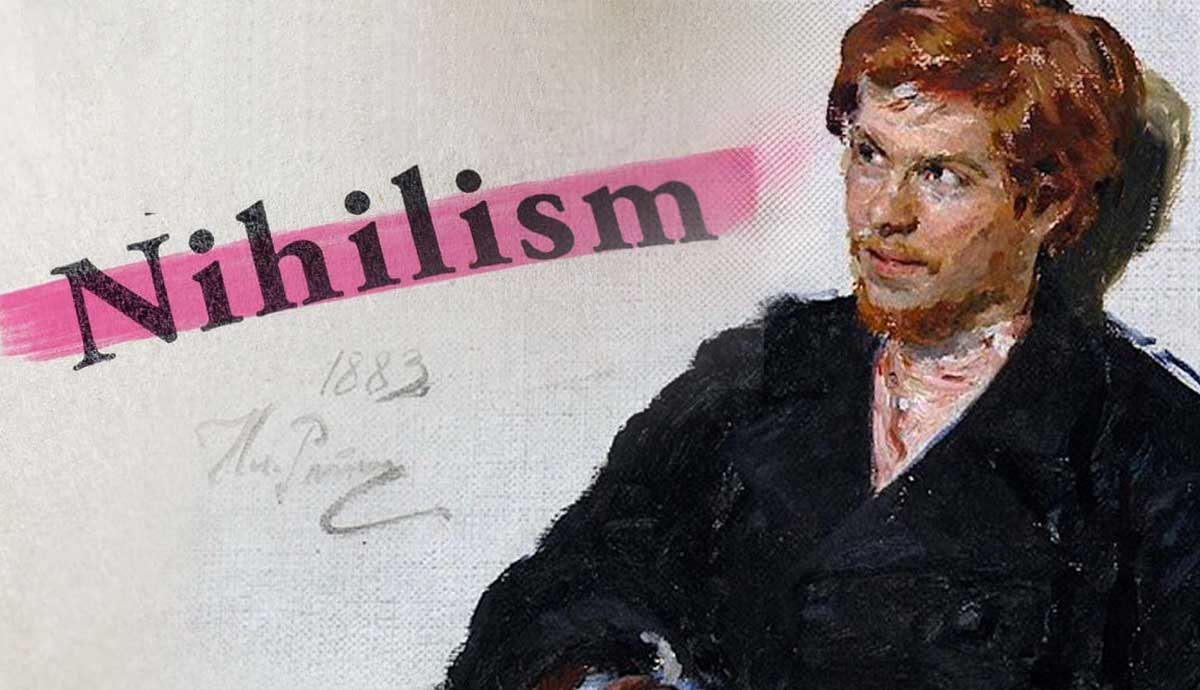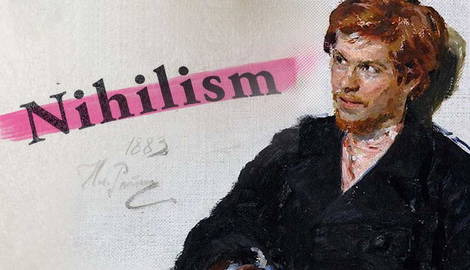
Nihilism occupies a strange position as a philosophical doctrine. Very few people hold it explicitly, and yet it occupies a disproportionate amount of space both in philosophical literature and in more popular attempts to engage with so-called ‘philosophical issues’. How can we define nihilism, and what is its philosophical significance? Let’s take a closer look.
The Origins of Nihilism

Nihilism has its origins in the 19th century. The origins of the term – or at least its use in something like its contemporary form – are to be found in Turgenev, the Russian writer, who used the term to refer to a kind of crude negation of every belief. Nihilism, for our purposes, is best understood as the belief that nothing is morally wrong or right. This is a belief plenty of non-philosophers are willing to pay lip-service to, but few (if any) are able to act according to.
It is very hard to believe that there is nothing fundamental about the wrongness of (say) murdering innocent children. Yet the arguments in favor of a certain kind of moral nihilism or skepticism (which we won’t go to great pains to distinguish here) aren’t so easy to dismiss. Some of these arguments are simple demands for a grounding or justification of moral claims, where that grounding or justification is independent of our intuitions or our desire that a certain moral claim holds. The moral skeptic might argue that this is the very essence of a justification – that the justification stands apart from the thing it justifies, or at least does not in some way depend on the thing it justifies being true for some other reason (such as, we want it to be true).
Nihilism as a Disposition

Perhaps it would be better to see nihilism not as a codified system of beliefs, so much as a disposition. Sometimes, nihilism is a disposition towards morality, religion, or some other overarching construct which determines our beliefs and our behavior. Sometimes it reflects a disposition towards other human beings. Often, it reflects a disposition towards philosophy itself. It might be the consequence of negative arguments, but its appeal goes beyond argument, and reflects a certain kind of response to what we have not yet discovered or do not know for certain.
The history of nihilism is, in this case, a long one – we can trace it back to ancient philosophers, like Empedocles, who famously held that, “the life of mortals is so mean a thing as to be virtually un-life”. It is also one which traverses a number of different political and philosophical positions. It is a way of thinking which can be used to characterize both the anarchist Mikhail Bakunin and the politically ambiguous (but far from anarchistic) Friedrich Nietzsche.
Bakunin and Nietzsche

Indeed, there are affinities between Bakunin and Nietzsche’s nihilism which one might not expect from their political and social disagreements. Bakunin implored that we, “put our trust in the eternal spirit which destroys and annihilates only because it is the unsearchable and eternally creative source of all life–the passion for destruction is also a creative passion”. This emphasis on nihilism’s positive dimension finds, to a certain extent, a Nietzschean parallel.
Many of the virtues which Nietzsche holds most dear – self-determination, freedom from extant values, creativity and so on have the kind of destructive-creative dual nature Bakunin is gesturing towards here. However, nihilism for Nietzsche, where nihilism is given the sense of a collapse of meaning across Western society, is to be seen not only as a catastrophe, but as the definitive coming catastrophe for Western civilization as a whole.










